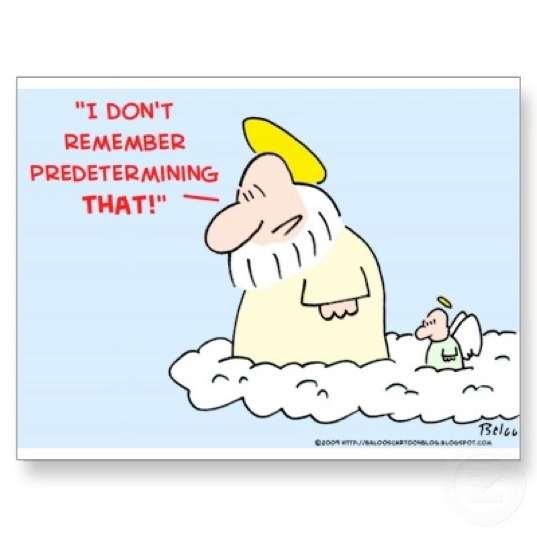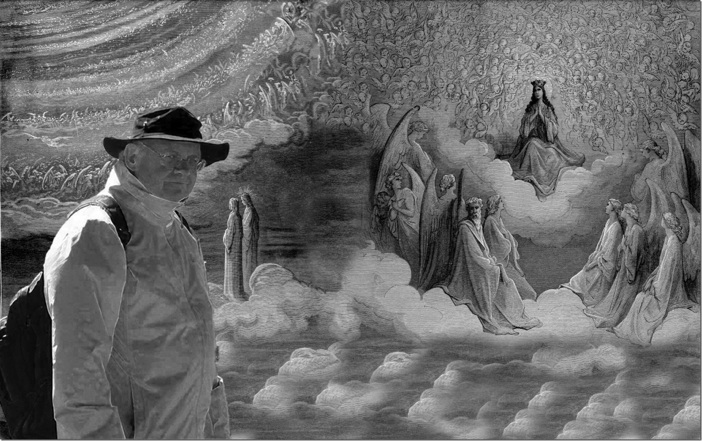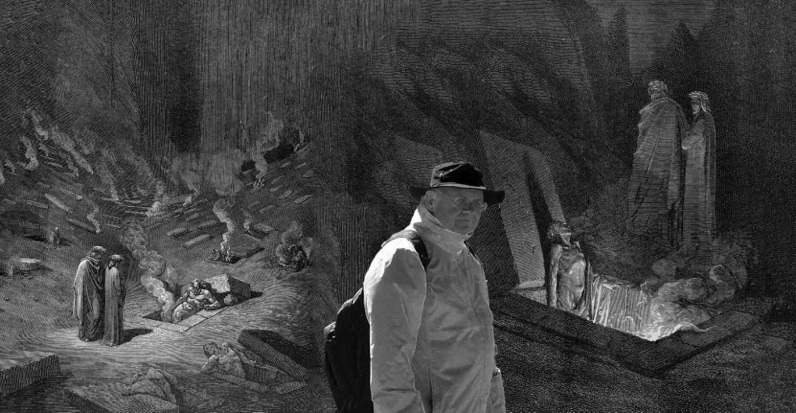It is possible to find *prima facie* evidence in the Bible for each of these three propositions. So one day I sat down and, setting aside disputes over controversial translations of key NT Greek words as well as the standard theological objections or defences of one position over against the others, I began to review the obvious.
In support of proposition (1), That it is God's redemptive purpose and glory to both judge and save the world and to fully reconcile all human beings to himself; in support of that proposition one might cite texts such as II Peter 3:9:
"The Lord . . . is not willing that any should perish, but that all should come to repentance";
I Timothy 2:4: God
"desires all men to be saved and to come to the knowledge of the truth";
Romans 11:32:
"For God has imprisoned all in disobedience so that he may be merciful to all";
and Ezekiel 33:11:
"As I live, says the Lord God, I have no pleasure in the death of the wicked, but that the wicked turn away from his way and live . . .."
All of these texts clearly state that God sincerely wants to reconcile all sinners to Himself, and that his failure to do so would prove to be a tragic defeat of one of his central purposes in creating and redeeming the world.
Similarly, in support of proposition (2) That it is within God's power, as sovereign Lord of the universe, to achieve ALL his redemptive purposes... one might cite such texts as Ephesians 1:11: God
"accomplishes all things according to the counsel of his own will";
Job 42:2:
"I know that thou canst do all things, and that no purpose of thine can be thwarted";
Psalm 115:3:
"Our God is in the heavens; he does whatever he pleases";
and Isaiah 46:10b & 11b:
"My counsel shall stand, and I will accomplish all my purpose . . . I have spoken, and I will bring it to pass; I have purposed, and I will do it."
These texts (and countless others in both the Old and New Testaments) state that God, because he is God, is able to accomplish ALL of his purposes according the council of his will.
And in addition to these texts, a number of others clearly state that God does not just have the desire and intention to save the world but also the wisdom and power to bring all things into a voluntary saving. loving subjection to Christ as King and Lord of All. Thus.
I Corinthians 15:20-28, says
... Christ has been raised from the dead, as the first-fruits of all who have fallen asleep. As it was by one man that death came, so through one man has come the resurrection of the dead. Just as all die in Adam, so in Christ all will be brought back to life, but all of them in their proper order; Christ the first-fruits, and next, at his coming, those who belong to him. After that will come the end when he will hand over the kingdom to his Father, having abolished every principality, every ruling force and power. For he is to be king until he has made his enemies his footstool, and the last of the enemies is done away with is death, for he has put all things under his feet. But when he said everything is subjected, this obviosuly cannot include the One who subjected everything to him. When everything has been subjected to him, then the Son himself will be subjected to the One who has subjected everything to him, so that God may be all in all.
Colossians 1:19-20
For God was pleased to have all his fullness dwell in him [Christ], and through him to reconcile to himself all things, whether things on earth or things in heaven, by making peace through his blood, shed on the cross.
And..
Romans 5:18-19
Consequently, just as one trespass resulted in condemnation for all people, so also one righteous act resulted in justification and life for all people. For just as through the disobedience of the one man the many were made sinners, so also through the obedience of the one man the many will be made righteous.
Finally, in support of proposition (3) Some scriptures suggest that some people will never, ever be reconciled to God. God will consign them to a never ending “punishment” in Hell or put them out of existence altogether...one might cite such texts as Matthew 25:46:
"And they will go away into eternal punishment, but the righteous into eternal life";
II Thessalonians 1:9:
"They shall suffer the punishment of eternal destruction and exclusion from the presence of the Lord and from the glory of his might . . .";
and Ephesians 5:5:
"Be sure of this, that no immoral or impure man, or one who is covetous (that is, an idolater), has any inheritance in the kingdom of Christ and of God."
These texts, at least in our English translations, appear to say that not just some but many people, possibly most of mankind, will be lost forever in the penal fires of Hell where ‘the worm does not die and the fire is never quenched’ (Mark 9;48) and will never be reconciled to God.
After reviewing these texts for many years now one thing which continues to strike me as transparently obvious is this:
Anyone who takes a position with respect to these three propositions--whether the person be a Calvinist, an Arminian, or a Christian Universalist--will end up denying the literal truth of at least one of these propositions for which there is an apparent prima facie biblical/textual support.
And in that respect Christian Universalists are in exactly the same position as Calvinists and Arminians. So I found myself, at this point, wanting to put several questions to those who would simply dismiss, out of hand, Christian Universalism as a position which is heretical and unbiblical.
















